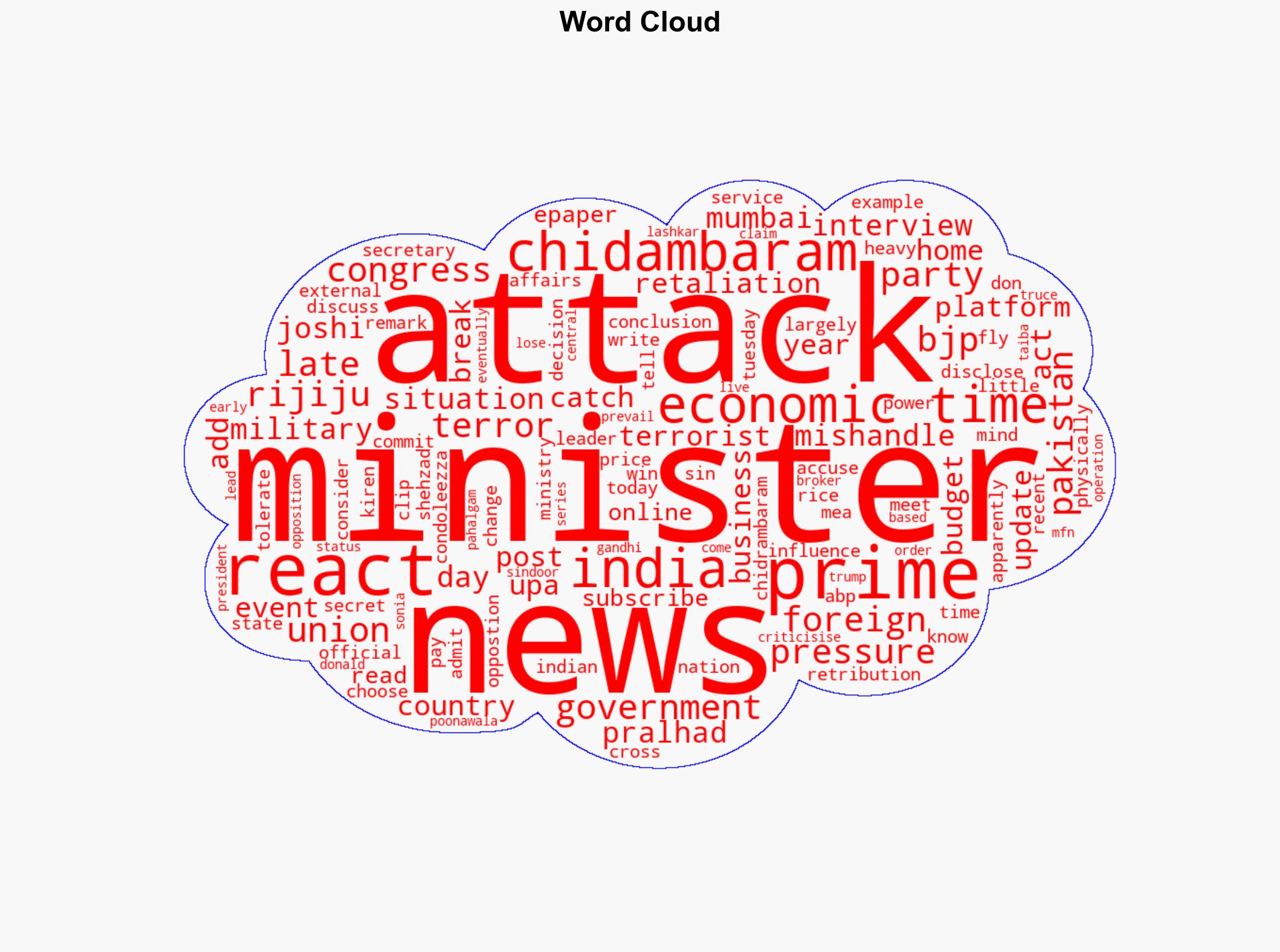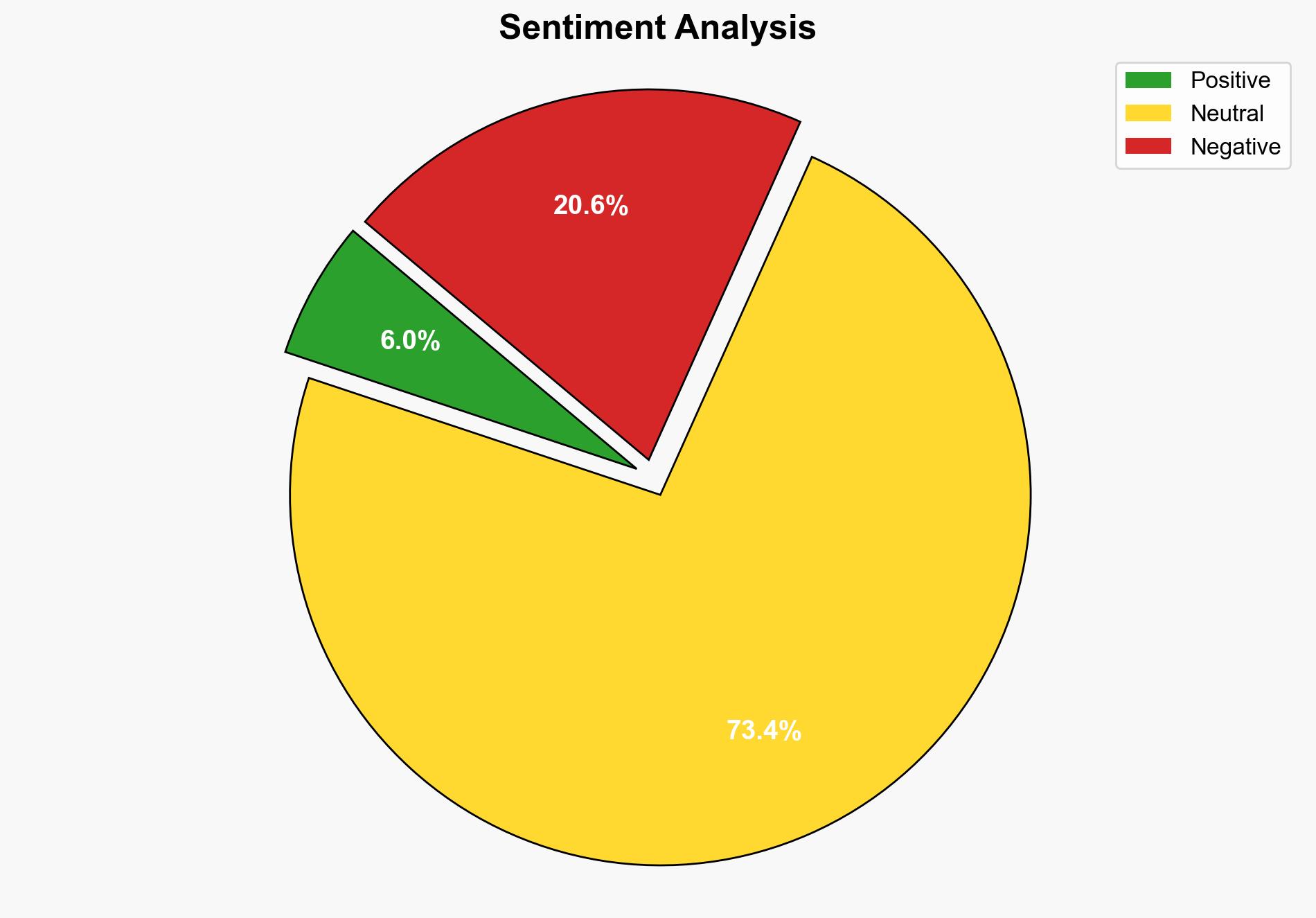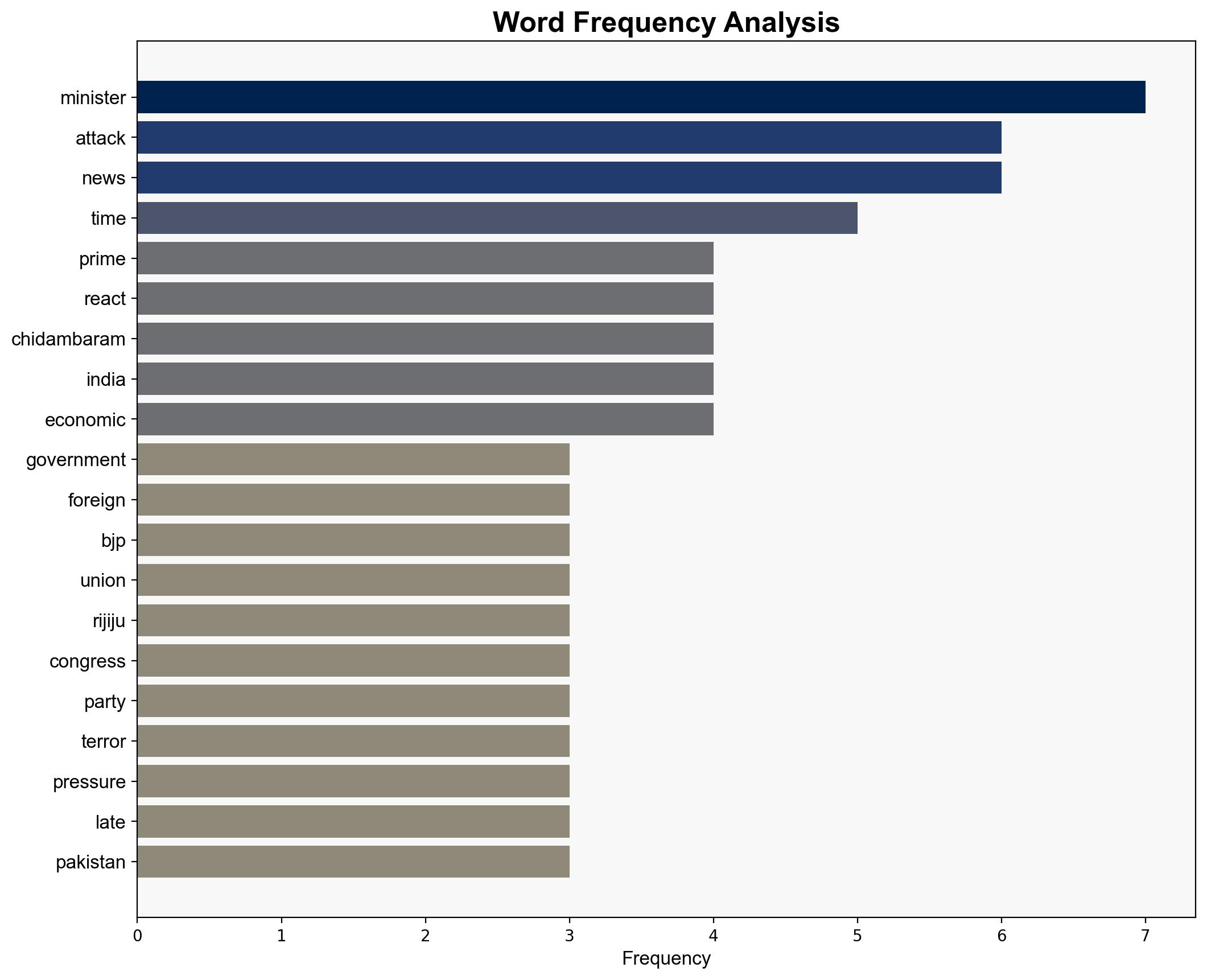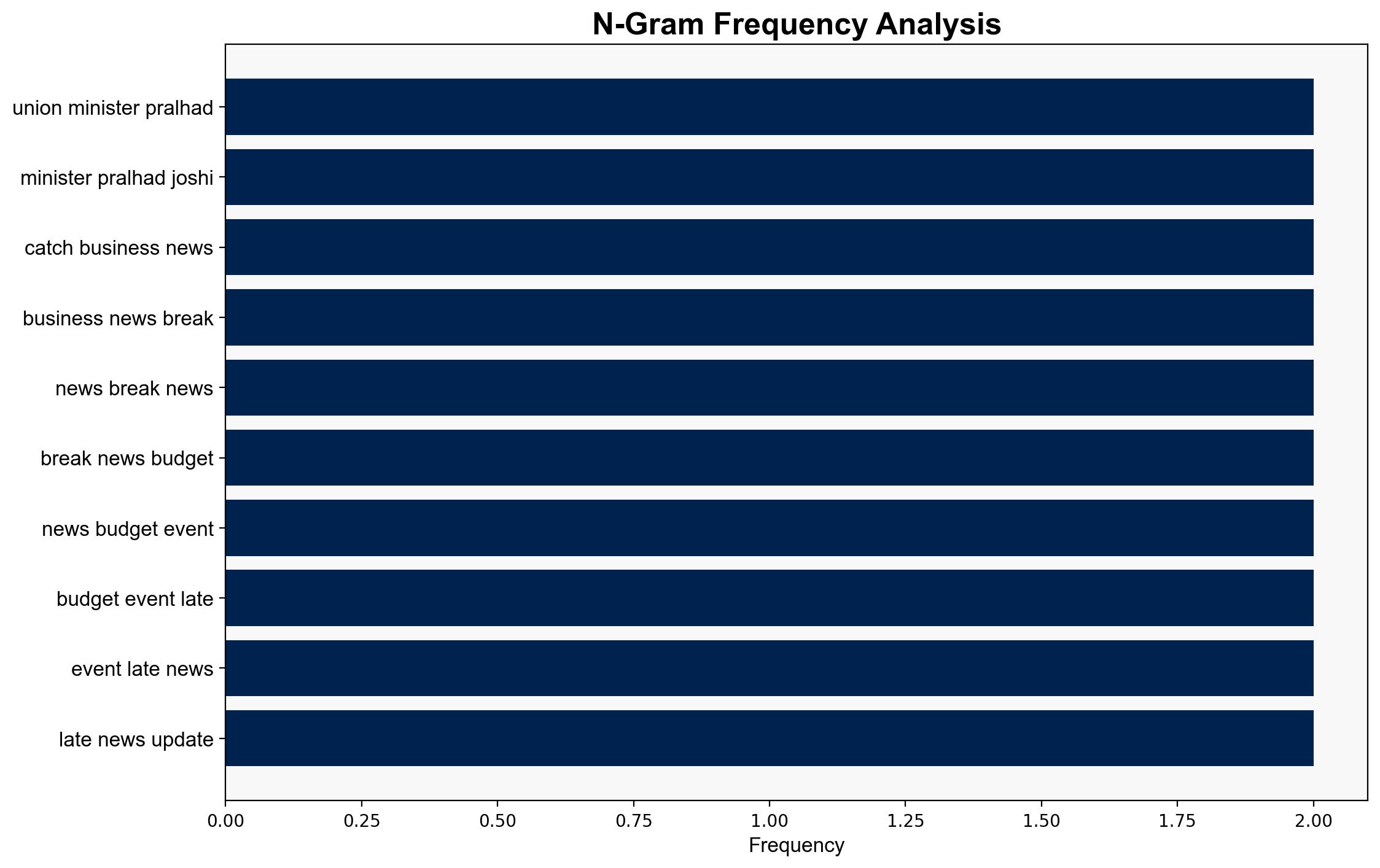Chidambaram reveals US stopped India from military retaliation after deadly 2611 Mumbai attacks – The Times of India
Published on: 2025-09-30
Intelligence Report: Chidambaram reveals US stopped India from military retaliation after deadly 2611 Mumbai attacks – The Times of India
1. BLUF (Bottom Line Up Front)
The analysis suggests that the United States may have influenced India’s decision not to pursue military retaliation following the 2008 Mumbai attacks. The most supported hypothesis is that geopolitical considerations, including maintaining regional stability and preventing escalation, were prioritized. Confidence in this assessment is moderate due to limited corroborative evidence. Recommended action includes enhancing diplomatic channels to ensure transparent communication in future crisis scenarios.
2. Competing Hypotheses
1. **Hypothesis A**: The United States actively intervened to prevent India from retaliating militarily against Pakistan to maintain regional stability and prevent escalation.
2. **Hypothesis B**: India independently decided against military retaliation due to internal political considerations and potential economic repercussions, with US influence being minimal or indirect.
Using ACH 2.0, Hypothesis A is better supported due to historical precedence of US involvement in South Asian conflicts and statements from key individuals suggesting external pressure. Hypothesis B lacks direct evidence of internal political dynamics influencing the decision.
3. Key Assumptions and Red Flags
– **Assumptions**: It is assumed that the US had significant leverage over India’s decision-making process. Another assumption is that India’s government was unified in its response strategy.
– **Red Flags**: Lack of direct evidence from official Indian or US sources confirming the extent of US influence. Potential bias in statements from political figures with vested interests.
4. Implications and Strategic Risks
Failure to address perceived external influence could lead to domestic political instability and erosion of public trust in government decisions. Regionally, unresolved tensions between India and Pakistan could escalate, impacting economic and security dynamics. The potential for cyber and psychological operations to exploit these tensions remains high.
5. Recommendations and Outlook
- Enhance diplomatic engagement with the US to clarify roles in crisis management and ensure mutual understanding.
- Develop a comprehensive internal review of decision-making processes to strengthen national security policy autonomy.
- Scenario Projections:
- Best Case: Strengthened India-US relations with transparent crisis management protocols.
- Worst Case: Heightened regional tensions and domestic political fallout.
- Most Likely: Continued diplomatic engagement with periodic tensions.
6. Key Individuals and Entities
– Chidambaram
– Condoleezza Rice
– Kiren Rijiju
– Pralhad Joshi
– Shehzad Poonawala
7. Thematic Tags
national security threats, counter-terrorism, regional focus




